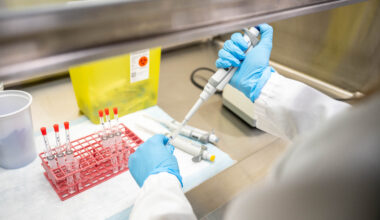Researchers have established that the foggy feeling and forgetfulness that many new mothers report during and after pregnancy—known as “mom brain”—is real. But new findings from Dr. Liisa Galea and her team at the University of British Columbia suggest that the effect of motherhood on the brain appears to last much longer after childbirth than previously believed.
In a study published recently in the journal Neurobiology of Aging, the researchers looked at the effect of Premarin, a type of hormone therapy, on the cognitive abilities of female rats. Hormone therapy is often prescribed to relieve menopausal symptoms such as hot flashes and headaches, but there have also been claims that it can protect against cognitive decline.
The researchers found that Premarin did affect the rats’ cognitive abilities—but whether the effect was positive or negative depended on if the animal had been a mother or not. Animals that had previously given birth were affected negatively, but those who had never given birth experienced a positive effect.
The findings suggest that a woman’s reproductive history—whether or not she had biological children—may impact the brain’s ability to respond to hormones later in life.
“Previous research has suggested that our brains do change with pregnancy but it was assumed that it would bounce back a year after giving birth,” said Dr. Galea. “In fact, we are just beginning to understand how motherhood influences the brain—and it appears that these changes may have a lasting effect long after pregnancy.”
Dr. Galea and her colleagues chose to look at Premarin for this study because of a 2003 trial that concluded the drug was associated with a higher incidence of dementia in women aged 65-79. Premarin was once the most widely prescribed hormone therapy in the United States but its use declined after the 2003 trial.
For the study, they trained rats in the Morris water maze—a behavioural task widely used in neuroscience to study spatial learning and memory in rodents. One group of rats were given the hormone therapy, while the other served as a control group and were not given any drug.
Before they were given hormone therapy, the researchers found the animals that were previously mothers performed slightly better in the maze and had more neuroplasticity—the ability to form new neural connections—than those that had never given birth.
“But what was interesting was that, after we gave them this hormone therapy, the moms and the non-moms responded completely opposite: the moms’ performance was impaired, but the non-moms’ performance actually improved,” said Dr. Galea.
The researchers also found that, after hormone therapy was administered, immune signalling increased in the moms but decreased in the non-moms—suggesting the body’s ability to fight off infectious agents like bacteria or viruses later in life may also depend on reproductive history.
Dr. Galea said she plans on looking at the effect of other hormone therapy drugs on cognitive abilities in future research.
But, she said, the findings of this study underscore the necessity of considering reproductive history when treating menopause in aging women.
The study was funded by CIHR and the Alzheimer Society of Canada.


